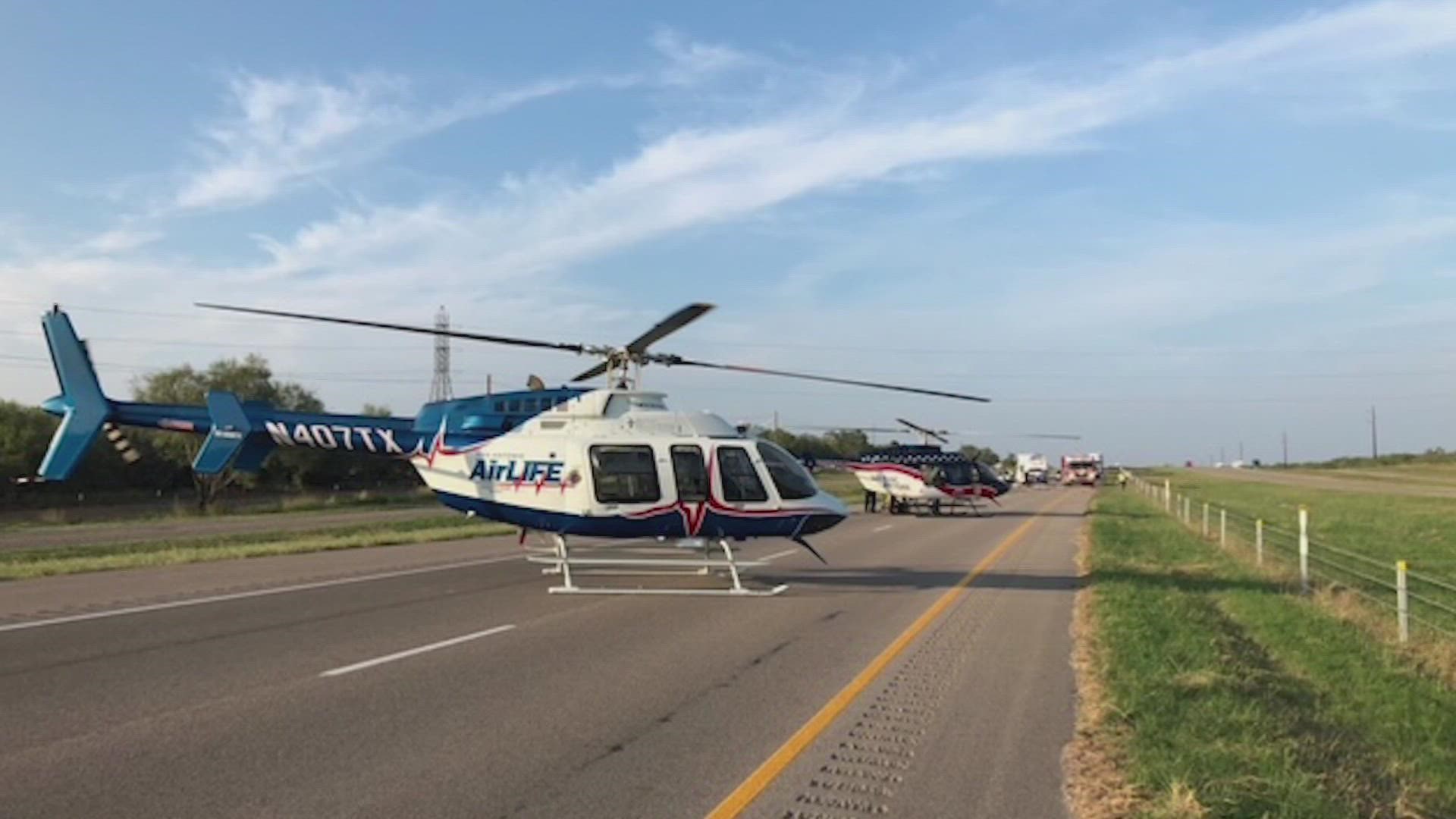SAN ANTONIO — Two Air Methods bases have shut down for financial reasons, prompting some concern among the regional emergency health care system on how the closures could affect response times.
Air Methods, parent company of San Antonio AirLIFE, has provided medical helicopter transport for communities within a 150-mile radius of San Antonio for three decades.
The Kerrville and Pleasanton operational bases grounded operations one week ago, which flew rescue missions for rural cities in the Texas Hill Country and border communities.
Early last week, the Colorado-based company announced several base closures nationwide, citing a slew of financial reasons, including the “tremendous pressures” from the No Surprises Act, which aims to protect consumers from massive out-of-network medical costs.
Air Methods addressed the decision to shutter bases in this emailed statement:
Today, Air Methods closed several bases nationwide due to the tremendous pressures from the No Surprises Act (NSA), unprecedent inflation and significant under reimbursement from Medicare, which the government hasn’t updated in nearly 20 years. The decision to close a base is never taken lightly as we understand this further impacts access to critical healthcare services in communities that greatly depend on them. Therefore, Air Methods conducted extensive financial analysis and explored every option at our disposal for nearly a year but ultimately, determined that keeping these bases open is simply unsustainable. We are, however, always open to collaborating with hospitals or local agencies to find viable ways to keep bases open as our ultimate goal is to provide life-saving efforts to those who need us the most.
Dudley Wait, chief operations officer for STRAC (Southwest Texas Regional Advisory Council), stressed how vital air ambulance services are in situations where immediate care is needed, especially when patients need to be transported to trauma hospitals from rural communities where such care isn’t always available.
“In many parts of our region, they’re critical because they provide something that we can’t do on the ground, which is speed,” Wait said.
STRAC oversees and the trauma and emergency health care system across 22 counties and 26,000 square miles in Texas. Wait said he was shocked when he learned of the abrupt closure of the AirLIFE bases in Kerrville and Pleasanton.
“The one in Kerrville sat next to a helicopter for another air medical agency (Air Evac Lifeteam) as well. But there was demand for both air craft at that location for the areas around there,” Wait said.
Kerrville Fire Chief Eric Maloney explained in a press release how the department and partnered agencies will adapt with the absence of the AirLIFE chopper.
“Over the past 14 years, the Kerrville Fire Department has made strategic decisions when both helicopters were not available during emergencies, and we will continue to monitor flight times and availability. We routinely request a “flying standby” that will launch a helicopter from these regional bases prior to EMS arrival to reduce the response times,” Maloney said.
He noted the lack of a medical helicopter in Pleasanton creates a hole in coverage that would be forced to be filled by other air ambulance companies such as Air Evac, which according the agency, has a chopper and crew in nearby Jourdanton.
“Whether it’s traffic accidents or other mass casualty incidents, every helicopter we can possibly get is a tool that we need to get those patients to definitive care that much more quickly,” Wait said.
Regarding the No Surprises Act, Wait is worried how the financial impacts could eventually apply to ground EMS. But currently, the No Surprises Act does not apply to ground ambulance companies.
“Private insurances a lot of times will pay a small portion of the bill and say the patient is responsible for the rest and then the patients will pay that bill, especially in our smaller communities. They’ll pay that bill because they’re supporting their local resources that came out to help them in their time of need. And when it’s going to be forbidden to do that and the insurance only pays that small little bit, it’s going to be difficult to be able to make ends meet to have people standing by when the call comes in,” Wait said.
Baptist Health System, which utilizes San Antonio AirLIFE is prepared to coordinate with the necessary partners if the base closures lead to any disruption in providing prompt care.
Baptist Health stated: “Baptist Health System has worked together with San Antonio Air LIFE for many years to provide lifesaving care to patients across the South Texas region. Should closures impact Texas, we will continue to work closely with STRAC and other regional air medical partners to ensure continuous, timely care is delivered to all patients in their time of need.”
Meanwhile, Air Methods’ bases in San Antonio and Uvalde are remaining operational.

